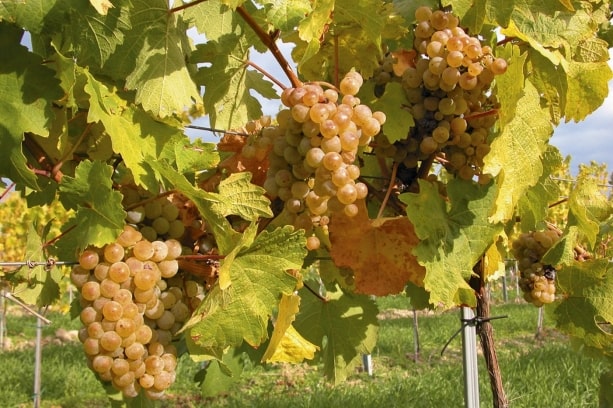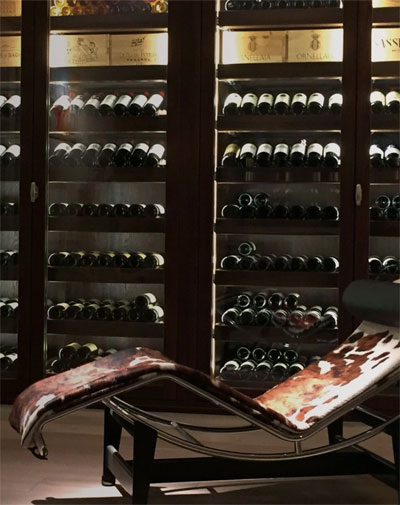THE GRAPE
Muscat Blanc à Petits Grains

Muscat Blanc à Petits Grains (Moscato Bianco in Italy) is the oldest member of the Muscat family, which places it in good standing as one of the oldest grape varieties in the world. The variety is named for its small berries and seeds (petits grains), as is its red-skinned mutation Muscat à Petit Grains Rouges.
Muscat Blanc à Petits Grains is grown widely both in Europe and the New World, giving it a long list of regional synonyms. It may be produced in a number of wine styles and sweetness levels, each with its own regional tradition. Dry varietal wines show a range of citrus, floral and spice aromas, with a full, dry palate. Sparkling and slightly sparkling examples are typically sweeter and tend towards melon flavors, with sweet, grapey smells. Dessert wines are typically produced as vins doux naturels.
As Moscato Bianco, the variety is planted all over Italy and makes up a significant proportion of white wine production there. It is most famously made as sparkling Asti or semi-sparkling Moscato d’Asti, vast volumes of which are exported annually. Moscato is sweet, fresh and low in alcohol, making it a popular choice for before or after dinner.
In France, Muscat Blanc à Petits Grains ranks among the country`s most widely-planted white wine varieties. Its plantings here are predominantly in the south, where it is most famously grown in Beaumes-de-Venise, Rivesaltes and Frontignan. Although once grown widely in Alsace, today`s Alsace Muscat wines are made mostly from sister variety Muscat Ottonel. Sweet Muscat Blanc wines are also made in Germany, Austria, Spain and Greece.
In Australia, the variety goes by various names, including Brown Muscat, Frontignan and Rutherglen Muscat. The latter is named for the Rutherglen wine region in the northeastern corner of Victoria. Rutherglen has long been established as a Muscat specialist region, and is home to some of the world`s finest sweet fortified Muscats, luscious and deep amber in color.
Synonyms include: Moscato Bianco, Muscat Blanc, White Muscat, Moscatel de Grano Menudo, Moschato Aspro, Muscatel Galego, Muskateller, Gelber Muskateller, Muscat Canelli, Moscato di Canelli, Moscadello, Muscadel, Muscat de Lunel, Muscat d’Alsace, Muscat de Frontignan, Frontignac, Brown Muscat, Rutherglen Muscat, Sarga Muskatoly, Tamianka,

Show more






























